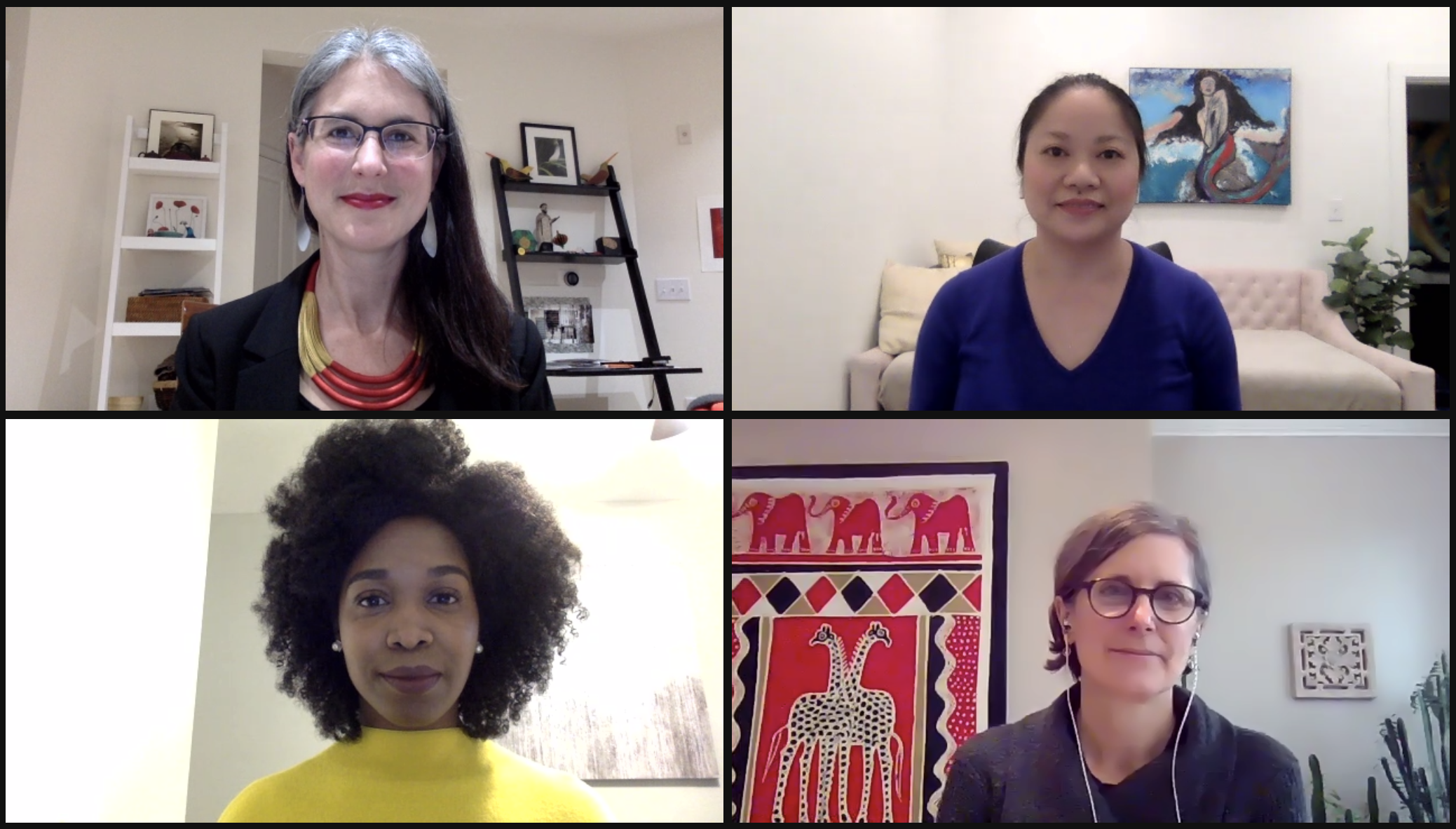Annual Issue Forum on Leading Systems Change

Posted in News Story
The Center for Public & Nonprofit Leadership hosted the Issue Forum “Leading Systems Change” on March 24, 2021 to build on the Center’s recently released report How to Lead Systems Change Work. The event included a panel featuring Tram Nguyen, Carolynn Brunette, and Tiffini Andorful and was moderated by the Center’s Associate Director, Luisa Boyarski. Both Brunette and Andorful are alumni of the Center’s Nonprofit Management Executive Certificate Program, while Nguyen serves on the Certificate Program’s faculty.
The Issue Forum had more than one hundred attendees representing Georgetown University students and faculty, as well as nonprofit and philanthropic leaders. You can view the video of the event here:
Given the context of 2020, both with the Black Lives Matter Movement and the COVID-19 pandemic, systems change work has become more critical than ever. The panelists discussed how the eight elements of systems change, identified by CPNL’s report, work in practice:
- Include a Diverse Collective of Voices
- Invest in Relationships
- Build Sustained Power in Communities
- Common Theory of Change that Focuses on Root Causes
- Commit to Data Informed Decision Making
- Maintain a Flexible Adaptive Strategy
- Pursue and Celebrate Short and Long Term Wins, and
- Invest in Facilitative and Consistent Leadership.
During the discussion, Tram Nguyen, the Co-Executive Director of New Virginia Majority, highlighted the need for centering systems change work around community feedback and community needs. “We can’t just tackle the ‘low-hanging fruit’, we have to tackle the tough stuff,” says Nguyen. She further shared that her approach to the work has changed over time. “[We found] it wasn’t enough to just take to the streets and do the activist part right. It wasn’t enough to protest and organize. It was also incumbent upon us to think about exercising our power in a different way – that accountability work was missing.”
Carolynn Brunette, the Managing Director of Prince Charitable Trusts, emphasized the need for funders to build trust with grantees in order to create flexible strategies. From a funding perspective, this requires “resourcing community leaders. They need to be provided with capacity building, or whatever it is they say they need, to participate effectively. … [A funder’s role is] building power and trust and then seeding power. What’s really important with funders especially is to come to the table as an equal partner and address that power imbalance.”
Tiffini Andorful, the Senior Director of Network Engagement at CityBridge Education, underscored the importance of disaggregating data in order to get a fuller picture of the impacts an organization’s work is making. “There is a consistent need to get underneath what the data is showing and really be intentional about unearthing those biases,” says Andorful.
Racial equity must be at the center of all of this work. Nguyen points out that “if we want to truly center racial equity and justice in our approach to systems change, it’s not enough to have diversity and have inclusion and people in the room. Each of those pieces and its silos are not are not enough. And so, when I think about the work of our organization and how we center that, it is that the rooms we create are created by people of color, by the new American majority.”
The Issue Forum concluded with a Question & Answer session with the panelists, where attendees asked about building authentic relationships with the community as well as strategies for taking advantage of unique advocacy opportunities when presented with them.
To read the full How to Lead Systems Change Work report, published by the Center for Public and Nonprofit Leadership in January of 2021, click here.
To view the video of the Issue Forum, click here.
